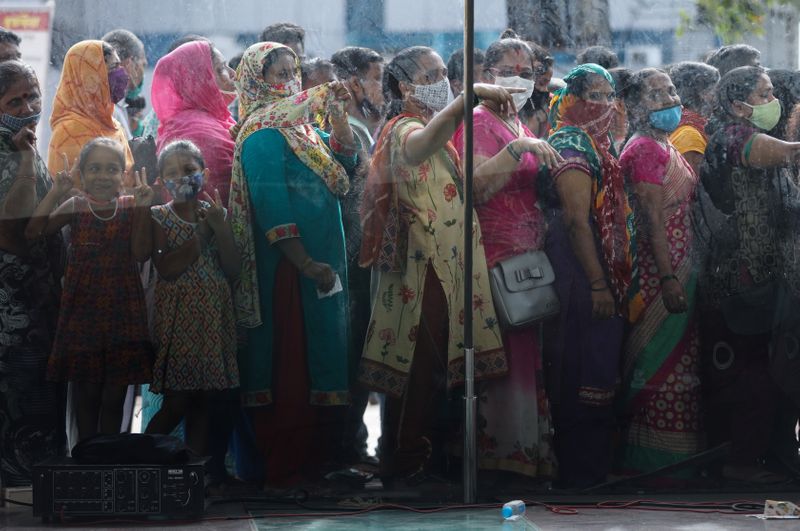MUMBAI (Reuters) -Authorities in India’s financial capital Mumbai have almost fully resumed suburban rail services for the first time in more than a year, as part of a wider easing of COVID-19 restrictions, as the pace of infections declined.
Previously, only essential workers were allowed to use the trains, but those who are fully vaccinated were allowed on board trains from Sunday.
Parks, seafronts and playgrounds were also allowed to stay open for all until 10 p.m. local time (1630 GMT), from the previous closing hours of 4 p.m., the city’s civic body said.
On Monday, the second day that trains were 95% open, crowds were sparse because of a public holiday.
In normal times, more than 8 million people travel on Mumbai’s local trains every day, but services have been closed to commuters since March 2020, when the first COVID-19 related lockdown was announced in the state.
In February this year, commuters were allowed on trains at non-peak hours, before being shut again as the country faced a devastating second wave that killed hundreds of thousands.
The thriving metropolis in the largest industrial state of Maharashtra, saw a peak of 11,000 daily cases a day at the height of the second wave in May-June, but new cases have fallen after stringent lockdown curbs, with overnight infections dropping to 267 new cases and four deaths on Sunday.
India is relying on two home-produced vaccines, Astra Zeneca’s Covishield, which is manufactured in India by the Serum Institute of India, and Bharat Biotech’s Covaxin. Almost half of India’s 950 million adults have received at least one dose of the vaccine so far.
India as a whole reported 32,937 new infections of the novel coronavirus in the last 24 hours, taking its total caseload to 32.23 million, data from the federal health ministry showed on Monday.
Deaths rose overnight by 417, with the country’s COVID-19 death toll standing at 431,642, the health ministry said.
(Reporting by Shilpa JamkhandikarEditing by Shri Navaratnam and Barbara Lewis)






















